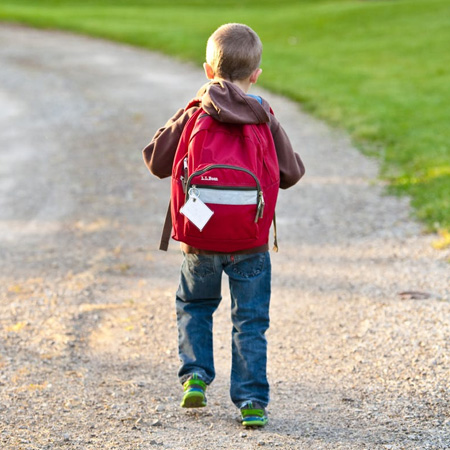
For some children, school can be far from fun. It can be boring, depressing, or even dangerous. Even if all is relatively well, children don’t want to go to school; there is so much fun elsewhere. In some cases, they may just refuse to attend it altogether. Such behavior is not only bad for your child future; it may be highly harmful. Desperate measures may be used, such as installing tracking devices. And the tips below would help you see whether you need to employ them.
Kids, especially teenagers, can be very secretive. And what better reason for lying and keeping secrets than skipping school, which you would certainly disapprove? Streets and questionable companies are far less safe than school even with all its deficiencies, so catching truancy as early as possible is crucial. There are some clues that help with that; some obvious and others quite subtle. It would be usually pure luck to find out that your child is searching for places to buy college essays or application papers, for example. Still, there are a number of ways that can help you understand whether your child is regularly out of school grounds.
How a Parent Can Know If Their Child Is Not at School
Listen to what your child says about school.
Unfortunately, despite all efforts from teachers and school boards, schools are rarely happy places. The workload is often too heavy, assignments are tedious, and disagreements with teachers may well make pupils sincerely hate school. And they likely will be quite vocal about it, if one is willing to listen. What does your son or daughter say about teachers, classmates, lessons? It is a warning sign if the school is described in the worst of terms. It is even more worrying if your child refuses to speak about days in school, answers in monosyllables or evades the subject altogether.

Rock Cafe
Monitor the grades.
A sudden drop in academics is a sure sign that something is wrong, especially when everything was relatively fine before. Do not be rash and scold for bad grades; there are multiple legitimate reasons for bad grades besides pure laziness. Struggling with studies can very likely turn your kid to other activities besides school, not all of them good.
Monitor your child’s health.
Does your child sleep well? Do nightmares appear often? Do you observe sudden fevers, headaches, or stomachaches right before school days or important tests? Health problems can be directly caused by high discomfort because of the school situation.
Observe changes in appetite.
What would your kid do when stressed? Both children and adults alike usually change their eating patterns when something is amiss. Some kids begin to overeat when they are nervous, while others stop eating altogether. Also note how does your very own student behave when they supposedly return from school. Do they eat ravenously, as if they haven’t eaten all day (therefore, probably skipped lunch)? Or do they eat far less than normal (eating somewhere else outside of school, perhaps?). Note how often these changes happen and if they are regular.

Estrilook.com
Does your child do their homework regularly?
Whether you are dealing with a college student or a high schooler, homework is crucial. Not doing their work regularly means that one gives up on studies for some reason. Try to observe whether there are papers in progress on the table or on the computer. Is your child willing to discuss with you the topics related to the essay due soon? Does he or she visit sites that assist with essay writing like Paperial or similar services?
Keep contact with the teachers, classmates, and other parents.
It would be great if the teacher would notify you at the first sign of trouble. Try to find the means to communicate with your kid’s teachers directly, not through the student himself. Be always respectful and open if possible. Try to visit the school, volunteer there together with your kids and other parents. This way you will witness first-hand the atmosphere in class, how the teachers and classmates treat your offspring. And keeping in contact with everyone will help you be aware of unwelcome changes in academics, behavior at school, conflicts, etc.
Encourage inviting classmates to visit if possible.
It is great when your kid has friends! Help strengthen the relationship by inviting other children for meals and play dates. Encourage older ones to do homework together. Observe discreetly how your own are treated, what the young ones discuss. Maybe you would overhear some warning phrases like a discussion about drugs or about where to buy college essays.
Look out for signs of substance abuse.
If a child has started drinking or doing drugs, you may notice the following:
- changes in behavior (depression or overexcitement)
- changes in the way they dress (they pay less attention to clothes)
- redness around the eyes
- slower reactions to things
- rapid mood changes
- unsteady gait, lack of coordination upon returning home
- health problems such as diarrhea, vomiting, and headaches

Medium
Look out for the signs of abuse.
If a child suffers from bullying or abuse, you may start noticing the following signs:
- depression
- lack of appetite
- unexplained bruises and torn clothes
- dirt on the clothes, hair, or face
- withdrawal from usual activities
- weight gain
- unexplained health problems
- the child does not have visits from friends
- the child obviously dislikes going to school
- the child stops discussing school, classmates, the next college essay, etc.
Observe if the child lies too much.
If the child keeps telling you things that are not true, it is a worrying sign. How many times had you been told that there was no homework? Or you had been notified about a sleepover with a friend who never heard about such a plan? Regular lies lead to an obvious conclusion: something is being hidden from you.
As you can see, seeing the signs of truancy requires involvement in the school life of your child. If you are the parent that one can talk to and confide in, catching that something is wrong becomes much easier! And if your kind has turned unresponsive and sullen for no apparent reason, maybe it is time to get unethical and start tracking their routes to prevent trouble.
Watch the video below